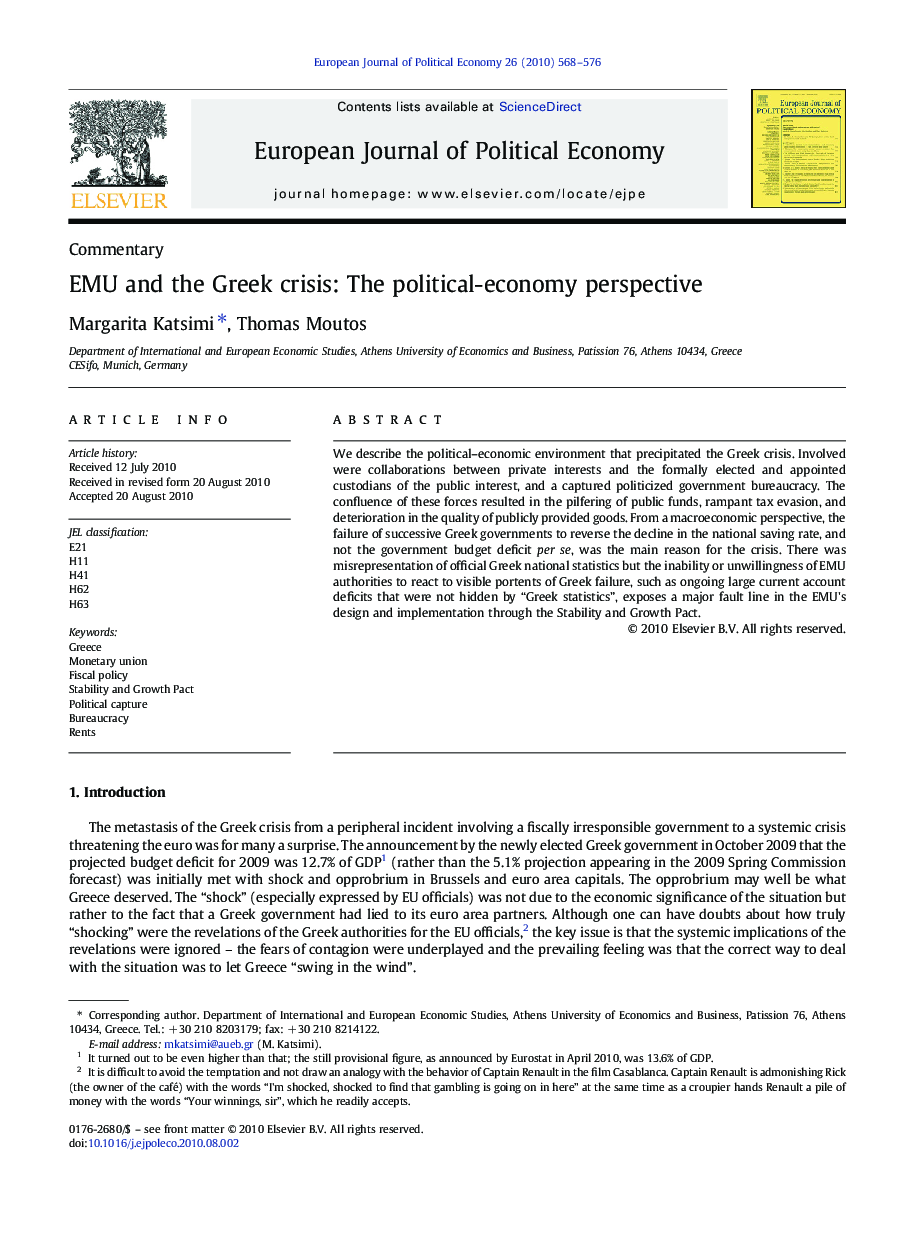| Article ID | Journal | Published Year | Pages | File Type |
|---|---|---|---|---|
| 5068333 | European Journal of Political Economy | 2010 | 9 Pages |
We describe the political-economic environment that precipitated the Greek crisis. Involved were collaborations between private interests and the formally elected and appointed custodians of the public interest, and a captured politicized government bureaucracy. The confluence of these forces resulted in the pilfering of public funds, rampant tax evasion, and deterioration in the quality of publicly provided goods. From a macroeconomic perspective, the failure of successive Greek governments to reverse the decline in the national saving rate, and not the government budget deficit per se, was the main reason for the crisis. There was misrepresentation of official Greek national statistics but the inability or unwillingness of EMU authorities to react to visible portents of Greek failure, such as ongoing large current account deficits that were not hidden by “Greek statistics”, exposes a major fault line in the EMU's design and implementation through the Stability and Growth Pact.
